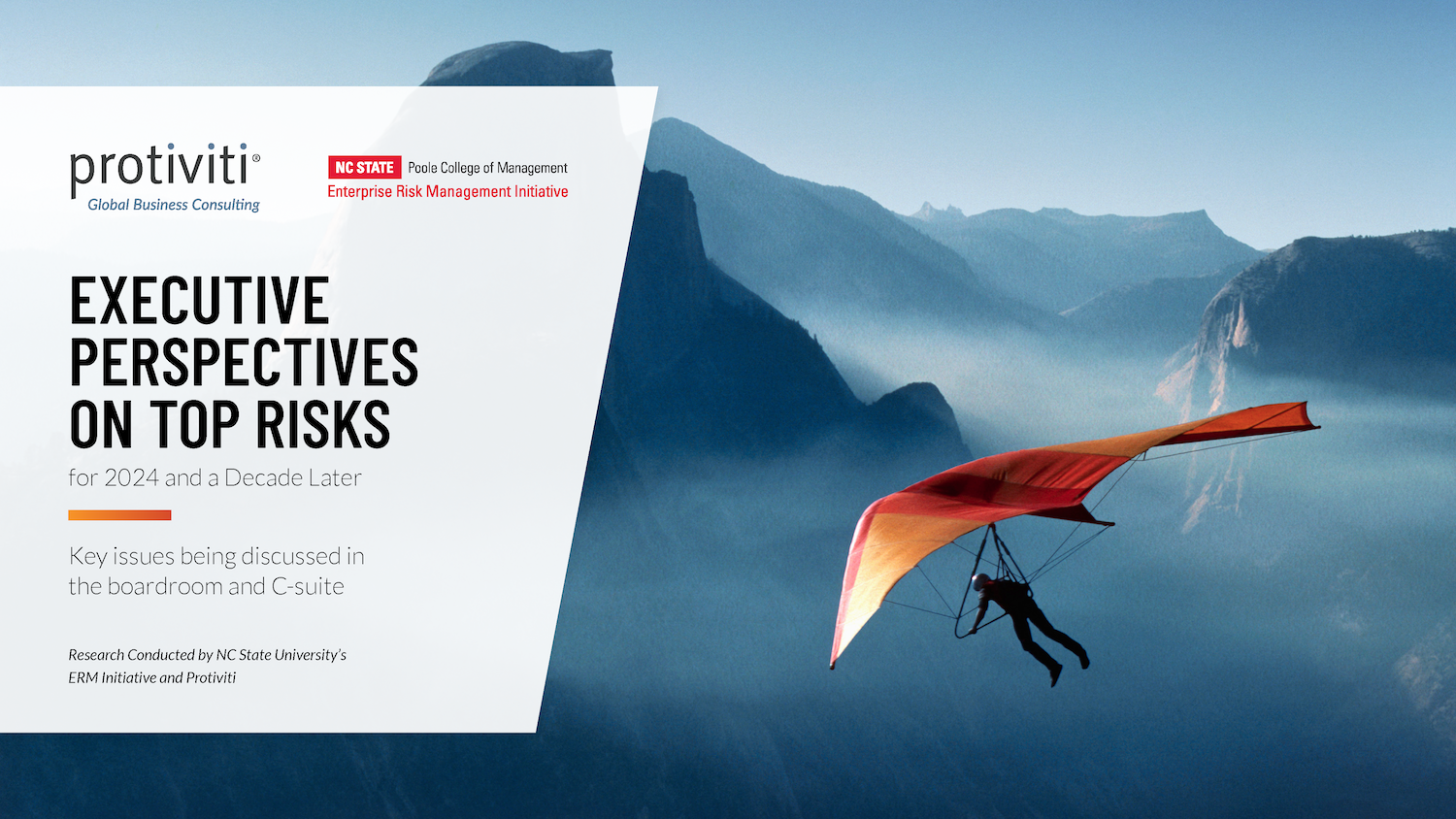Managing Uncertainty: Ten Considerations
Traditionally, the concept of risk has had a negative connotation. Organizations have been focused solely on avoiding risks to existing assets rather than embracing calculated risks that can lead to future success. Risk aware companies have the ability to produce and act upon risk information in order to stay out of trouble today and create new value tomorrow.
This Deloitte thought paper outlines ten fatal flaws that exist in conventional risk management today and their corresponding risk intelligence skills. Companies that are seeking to thrive during the uncertainty today can utilize these skills to identify where risk intelligence improvements should be made in their organization in order to make better risk management decisions.
1. Check your assumptions at the door: Rather than just focusing on current assumptions about the business environment, management should consider the antithesis of these assumptions. This can effectively allow management to see the opposite side of how everyone else is thinking and not only prepare for black swans, but also switch to an offensive mentality.
2. Maintain constant vigilance: Once leaders know the events, or black swans, they’re looking for, they should set up signal detection mechanisms, enable open lines of communication and develop responses. These detection notifications can provide faster emergency response and give first mover advantage to changes in the marketplace.
3. Factor in velocity and momentum: Typically, risk is measured in impact and probability without consideration of velocity. If organizations consider not only how bad things can get but also how fast can they get that way, leaders will be able to design more effective responses to risk events.
4. Manage the key connections: Maintaining an in-depth understanding of the organization allows leaders to identify which components are linked and which dependencies are critical. Transparency in key connections prepares the organization for both disruptions and opportunities.
5. Anticipate causes of failure: Just as many individuals dislike criticism, there are many companies today that don’t embrace open communication about weaknesses and potential failures. Managers should encourage open discussion about how the business could fail and can utilize a Failure Modes and Effects Analysis (FMEA) to better locate areas of risk or potential.
6. Verify sources and corroborate information – In order for risk managers to practice the best judgment on a day-to-day basis, risk intelligence must be founded upon information that is both credible and corroborated.
7. Maintain a high margin of safety: As we’ve all learned, no organization is too big to fail. Even the most intelligent, experienced and prepared leaders should be aware of their limitations and always maintain an appropriate margin of safety. Often times, it can be this margin of safety or lack thereof that can save or sink a company during tough economic times.
8. Set your enterprise time horizons: Recently, most business executives have been focused on short-term profits rather than long-term sustainability, driving many companies to a quick dead-end. Luckily, attitudes can be changed by boards, management and analysts to promote value creation and an economy that is more concerned with long-term growth.
9. Take enough of the right risks: A risk appetite should be defined internally to decide what types of risks the enterprise is willing to take on for different areas within the company and at different time periods. This calculated risk taking is one of the best ways to create a competitive advantage by determining which risks might return a reward or not and if the company has the capability to take on the risk.
10. Sustain operational discipline: Without a high level of operational discipline, risk intelligence be implemented or maintained. This discipline creates high standards of performance, integrity and survival during the most trying of times for every person in an organization.
There is a growing movement to increase board involvement in risk oversight, especially through regulatory initiatives. However, risk management focused on compliance alone will never be as successful as initiatives founded on the creation of competitive advantages and long-term value. Risk should be instilled in the culture as a day-to-day consideration for each person to create a truly risk intelligent enterprise.
Click below to download article
Original Article Source: “Risk Intelligent Decision Making: Ten Essential Skills for Surviving and Thriving in Uncertainty,” Deloitte, 2010


